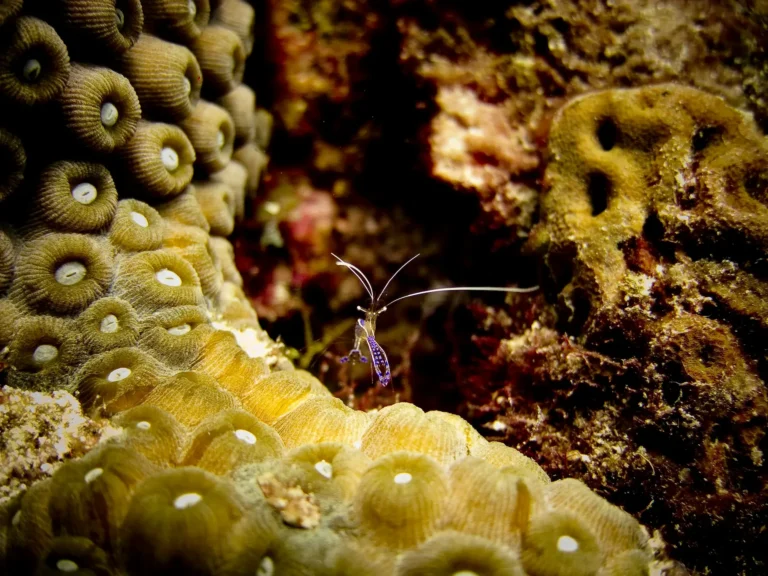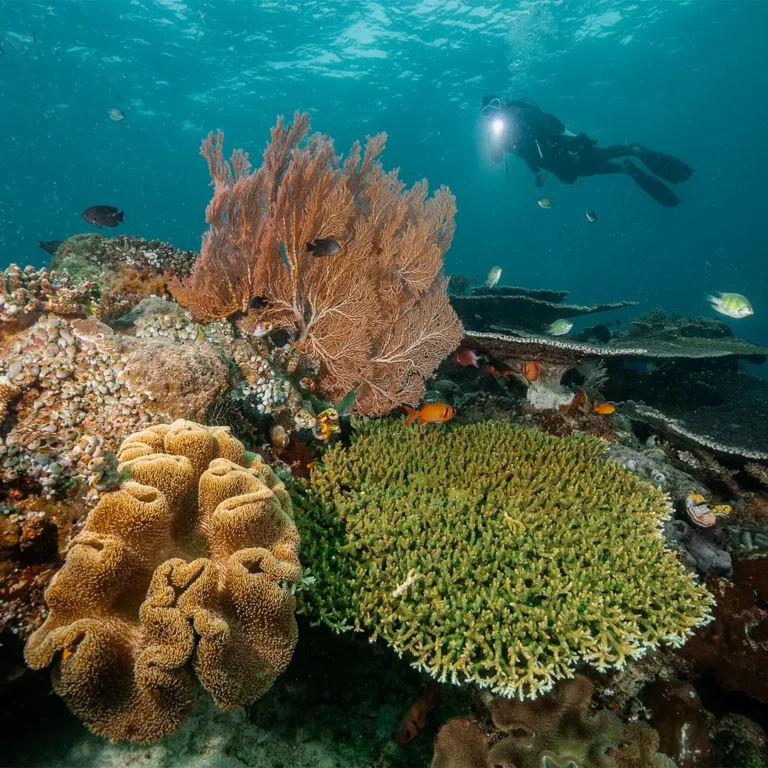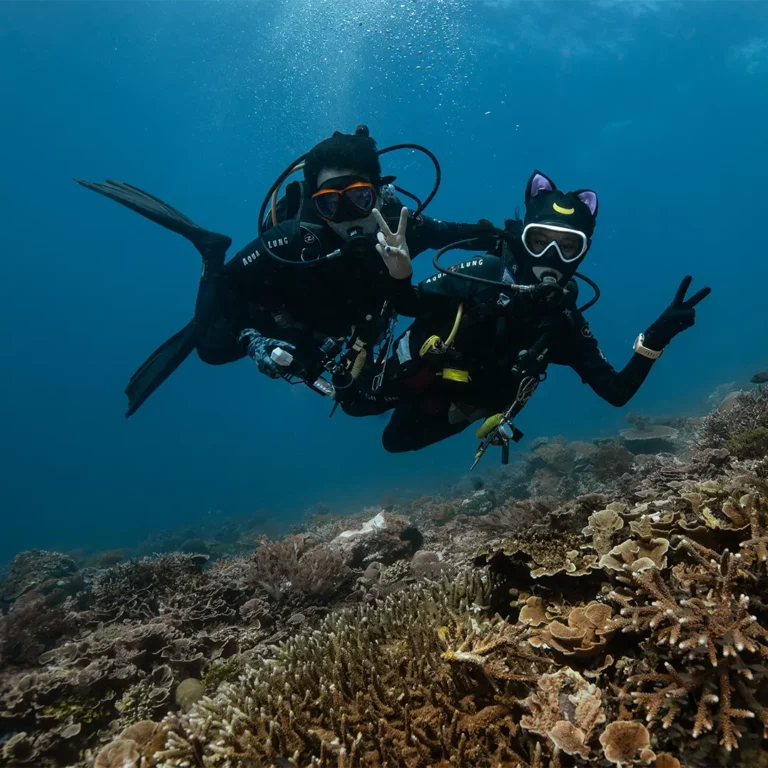Can Scuba Diving Burn Calories?
Here’s a cool fact. How many calories do I burn in a one hour dive? It’s about the same as a one hour jog, but it’s much more fun than that. If that sounds like a reason to justify spending more money on dive gear to your partner, then read on to learn more!
Diving is a fun and exciting hobby for people of all ages. Through diving you can experience life in the sea while exercising. Maybe you are wondering, how many calories will you burn when diving? The exact number of calories burned during a scuba dive varies depending on various factors such as the duration and intensity of the dive, the individual’s weight and physical fitness level. However, on average, a scuba diver can burn around 500-700 calories per hour of diving.
Keep in mind that the intensity of the dive plays a role in calories burned. For example, a leisurely dive at shallow depths may burn fewer calories compared to a more challenging dive with strong currents or deeper depths. Additionally, the use of specialised scuba gear and wetsuits can add resistance to movements.
Indeed, there are no absolute requirements for health and physical fitness for divers before they plunge into the sea. Divers who are out of shape or have low stamina are more likely to suffer from decompression sickness due to joint discomfort resulting from the buildup of compressed gas in the body. Divers who have been trained will usually maintain a healthy diet.
Health Requirements for Divers
Diving can be a physically demanding activity, so it’s important for divers to meet certain health requirements to ensure their safety. Before diving, individuals should undergo a medical evaluation to determine if they are fit to dive. This evaluation may include assessments of cardiovascular health, lung function, and general physical fitness.
Divers should also be aware of the importance of proper nutrition and hydration before, during, and after dives. Maintaining blood sugar levels and promoting carbohydrate availability during diving can help sustain energy levels and optimise performance. In addition, staying properly hydrated and consuming small amounts of carbohydrates between dives can help divers minimise weight loss to less than 2% of their body weight.
Does scuba diving allow you to burn calories?
Divers can lose a kilo or two by diving for one week. The possibility that divers would be eating large, hearty meals, especially when they are on a liveaboard, is taken into consideration. When diving, you must control your breathing to avoid overexertion. Actually, scuba diving is a relaxing hobby for many people. So, how do you lose weight when you’re floating through the water
Essentially, we’re using a process called thermoregulation to burn calories in the water. On land, we have a mean body temperature of 36.6 degrees celsius (98 degrees F). We’re exposed to considerably cooler temperatures, and our bodies are burning fat 25 times faster than on land when we’re underwater. We’re trying to keep our body’s temperature at 36.6 degrees celsius (98 degrees F) underwater when the ambient water temperature may be much lower. The effort required during this procedure helps us burn calories while scuba diving. In order to keep the body temperature stable, our bodies can consume up to 70% of their daily caloric requirements.
Another factor that affects the amount of energy we are using in the ocean is water density. The water is eight times as dense as the air, allowing it to absorb our body heat more rapidly. In order to compensate for the loss of heat, our body uses more energy and metabolism increases allowing us to burn calories while we’re swimming.
ALSO READ : Technical Diving vs Recreational Diving, What You Need to Know
During a scuba dive, how many calories do you burn?
Depending on temperature, depth and effort levels, the number of calories burnt per dive is highly variable. According to the research, it is possible to estimate the quantity of calories consumed during a dive by following:
- About 600 calories are burned in an hour by shore diving.
- Approximately 300 calories per hour are consumed during a dive in warm, tropical waters.
On average, between 400 and 700 calories are burned per dive.
What factors affect the number of calories that you’re burning in a scuba dive?
The number of calories you burn during each dive depends on depth, temperature and physical fitness.
Depth
The water pressure is higher when you’re deep in it. The body must work harder to move and exert itself against the water pressure on its way up.
- More calories are burned in deep dives than at the surface of the water.
- The boat dives accessing deep locations burn more calories in comparison to shore diving at shallow locations.
Temperature
Consider this: in the Arctic, a person must consume an average of 6000-9000 calories per day to stay warm, as opposed to the ordinary 1500-2000 calories per day, to appreciate how many calories the body may burn in cold water. During this process, it also indicates a high rate of expenditure on calories. You’re not diving in the Arctic, of course. But you can burn a lot of calories by swimming in cold waters.
Gender
For men and women, the average daily consumption of calories is 2000 and 1500 respectively. As a result, even if you’re diving twice a day, you’ll burn at least 800 calories, which means that even if you’re eating a lot, a week of diving can help you lose a lot of weight. After a week of diving, divers may lose up to a kilo (2 pounds) even if they are eating several full meals per day. Men’s muscles are more lean and they will probably be burning 40% more calories compared to women in similar diving conditions.
Physical Fitness
Divers are expected to be burning about 475 calories per hour with a body mass of 68 kilos (150 pounds). When diving in the same conditions, people with more muscle mass or body fat are more likely to burn more calories than people with less muscle mass.
Beginners tend to burn more calories than professional divers, because they’re more likely to flail their arms and spend a greater amount of time breathing in order to be comfortable with water.
It’s a full body workout swimming against the current, no matter how long you’ve been diving. The whole body needs to be active and strong for scuba diving, unlike weightlifting which focuses on specific areas.
ALSO READ : What is Drift Diving? Gear and Who Can Drift Dive
Calorie-Counting While Diving
If you’re diving to burn fat, bring a calorie tracker with you. However, water temperature is not taken into account in most calorie counters, so the values obtained will be estimates.
The most convenient approach to count calories is to use a “food counts” book. The amount of calories, protein, fat, carbohydrates, sodium, and other nutrients in a given food is indicated in a food count book, such as a food label. A comparable function is available on the Internet for some apps.
There are four calories in protein and carbohydrates for every gram, while fat has nine. Therefore, it seems that a diver who wishes to lose weight should avoid eating fat solely on the basis of its caloric content. However, more important than calories are the types of food.
For instance, avocados contain “good” fats. In order to fuel their training and sports activities, some divers already have an ideal body weight and eat. For long distance runners, the fuel for completing events that can last several hours is diet fat. Divers, on the other hand, need relatively little fat as fuel.








